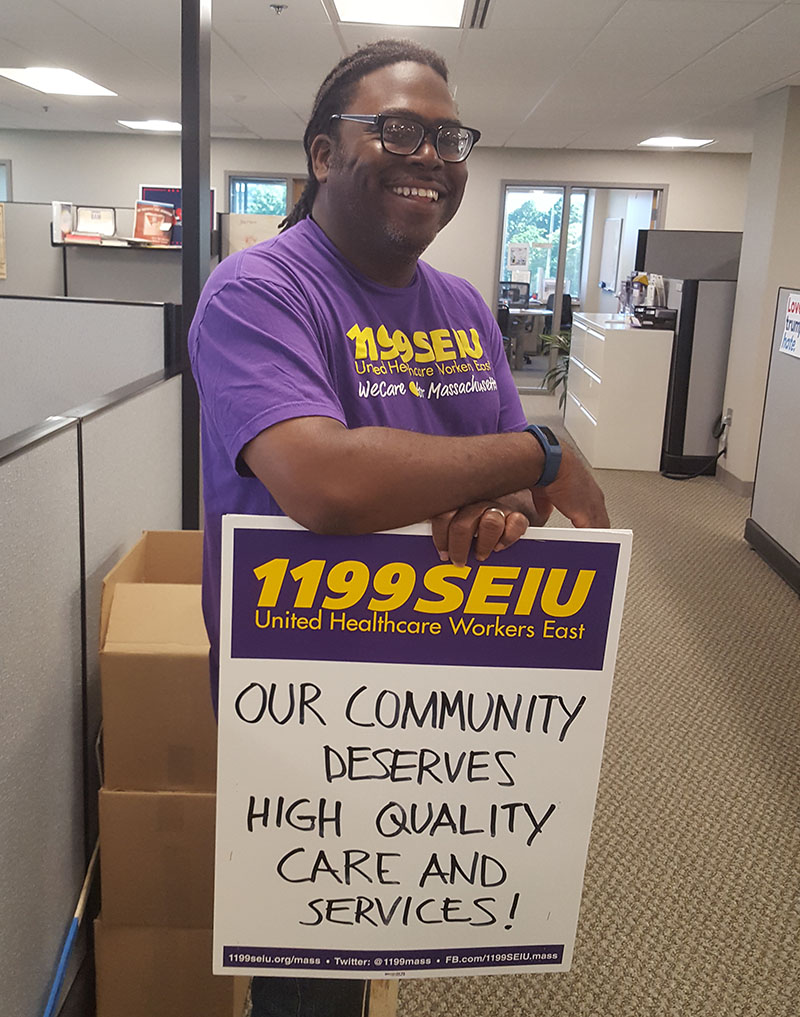Monday, March 25, 2019
What does it mean to be a public health social worker? CISWH’s Boston University Advancing Leadership in Public Health Social Work (BU-ALPS) project explores the career paths and impact of MSW/MPH alumni.
Allen Jackson, MSW, MPH, Senior Researcher, 1199SEIU United Healthcare Workers East, MA
 Allen is a 1997/1998 alumnus of the Boston University MSW/MPH Program, where he majored in Macro Practice in social work and concentrated in Social and Behavioral Sciences in public health. Allen was initially drawn to the MSW/MPH program due to interest in HIV/AIDS prevention and his first job after graduation was with the Boston Public Health Commission as a contract manager for the Ryan White CARE Act funding (HIV/AIDS services).
Allen is a 1997/1998 alumnus of the Boston University MSW/MPH Program, where he majored in Macro Practice in social work and concentrated in Social and Behavioral Sciences in public health. Allen was initially drawn to the MSW/MPH program due to interest in HIV/AIDS prevention and his first job after graduation was with the Boston Public Health Commission as a contract manager for the Ryan White CARE Act funding (HIV/AIDS services).
For the past ten years, Allen has been Senior Researcher for a healthcare workers’ union that represents many different kinds of workers such as technologists and care attendants. As a labor union researcher, Allen relies on the “hard skills” such as statistics and data analysis, as well as on his macro social work skills. “All the writing and research skills I gained in the MSW/MPH Program definitely helped prepare me for this job. I crunch a lot of data, so all those SAS and SPSS courses were helpful in making sure I was competent and prepared to play that role here. The macro practice orientation has been supremely helpful as my organization pursues our policy agenda to make sure, for instance, that nursing homes and community hospitals are properly funded and reflect the healthcare needs of the future.” On a day-to-day level, Allen says “My job involves the analysis and synthesis of healthcare-related financial and operations data related to the union’s organizing goals.” He prepares memos, reports, studies and other documents for internal and external audiences on various topics.
“We’re not just a union of healthcare workers, we’re a community advocacy organization too…it feels good to work somewhere that shares and acts on your shared social justice values.”
Work issues can range from efforts to find sustainable funding solutions for nursing homes, providing input on upcoming healthcare mergers, running agency workgroups or helping to draft new regulations. Allen also serves on the Chelsea Board of Health, which “maintains the city’s public health standards and protects its environmental resources through community education, and by promulgating reasonable rules and regulations pertaining to those matters.” Here he’s found his training in health policy and working with community groups useful in helping guide the council’s work.
Allen points out that his agency is engaged in advocacy for improvement in the healthcare system, often advocating for the communities where the unions’ members live to promote health equity and work for social justice. “I love that my job and my organization are involved in the community. We host annual health fairs, back-to-school drives, and candidate forums. We participate in various parades and cultural celebration and violence prevention initiatives. We’re not just a union of healthcare workers, we’re a community advocacy organization too. Our work is bigger than organizing workers and bargaining contracts. And it feels good to work somewhere that shares and acts on your shared social justice values.”
Allen’s advice for MSW/MPH students? “I suggest that students identify the types of employers they might want to work for to ensure that the skills they’re developing and learning ‘fit’ the type of organization they’re aiming for; having both degrees is great, and locating a place where you can use them both early on will be helpful to them.”
This profile is excerpted from Advancing Leadership in Public Health Social Work Education: MSW/MPH Program Handbook. This free resource, designed to help schools with their efforts to establish, promote, improve, and evaluate MSW/MPH programs, was produced by CISWH’s BU-ALPS project and funded by the Health Resources and Services Administration (HRSA) of the U.S. Department of Health and Human Services. This information or content and conclusions are those of the author and should not be construed as the official position or policy of, nor should any endorsements be inferred by HRSA, HHS or the U.S. Government.